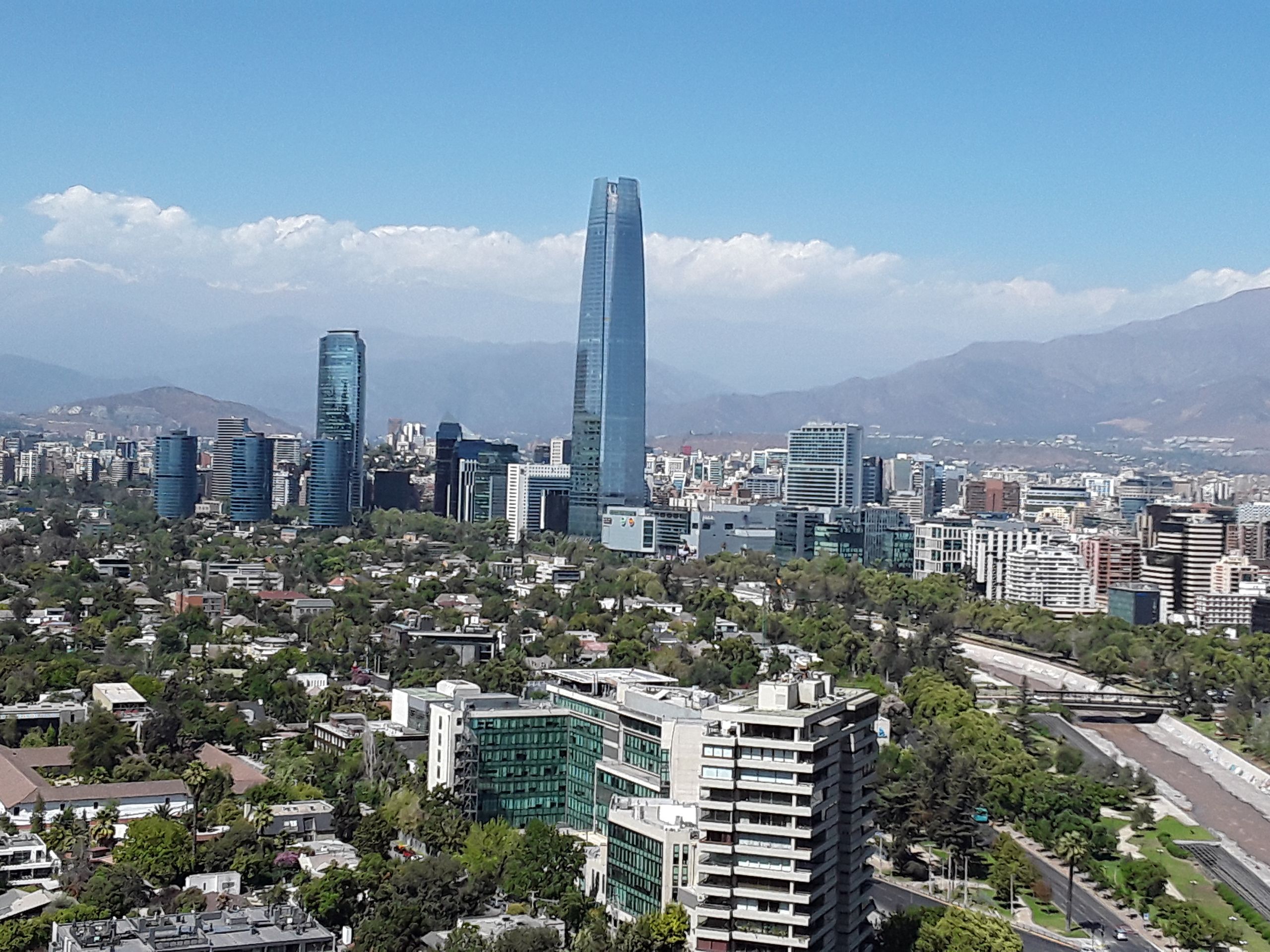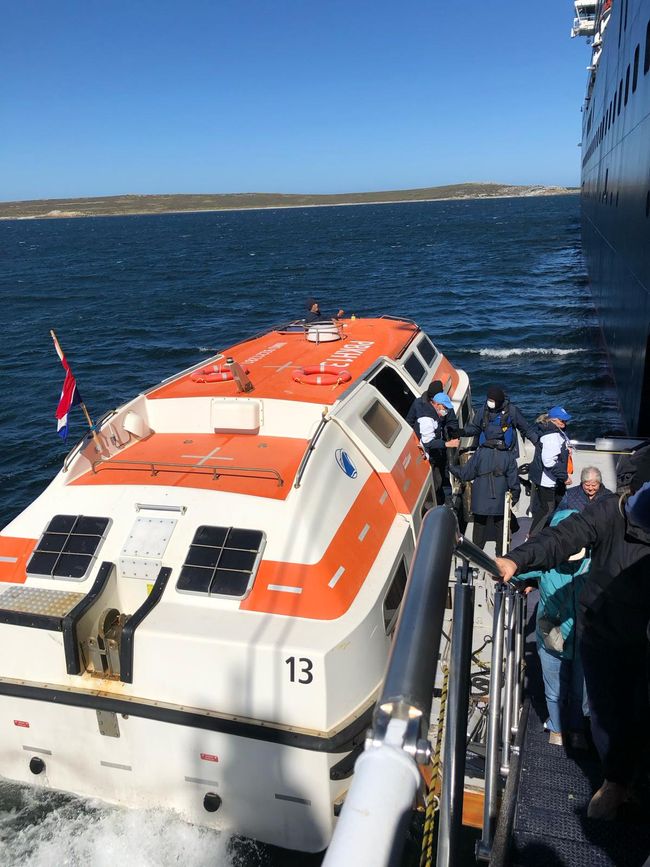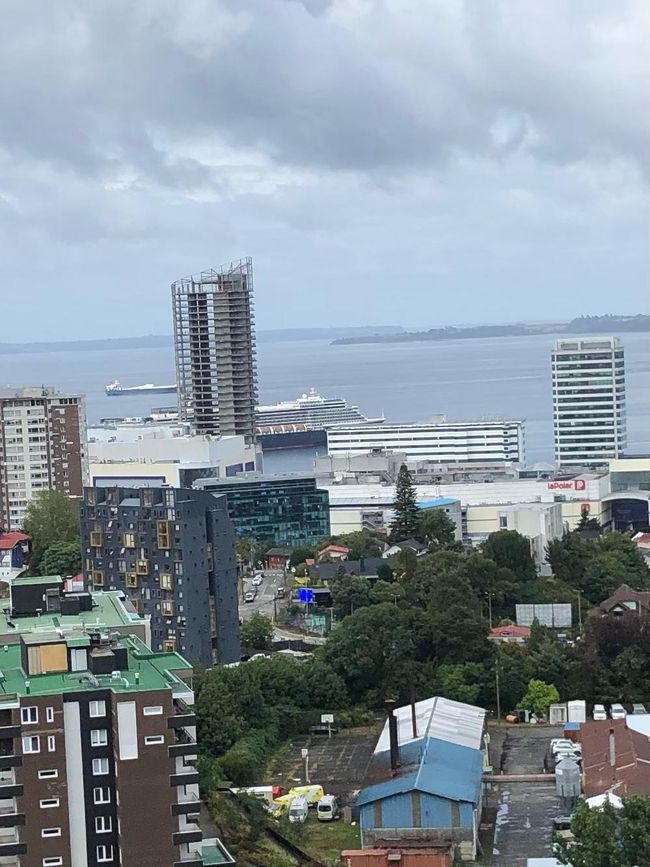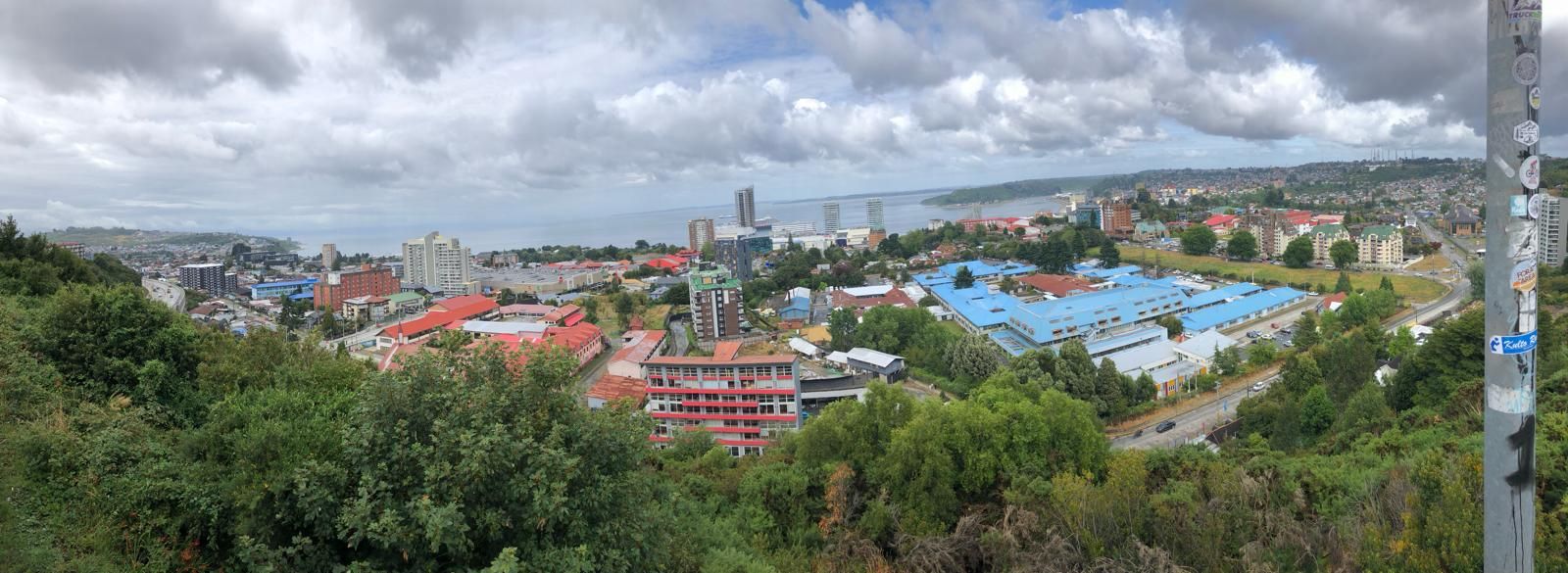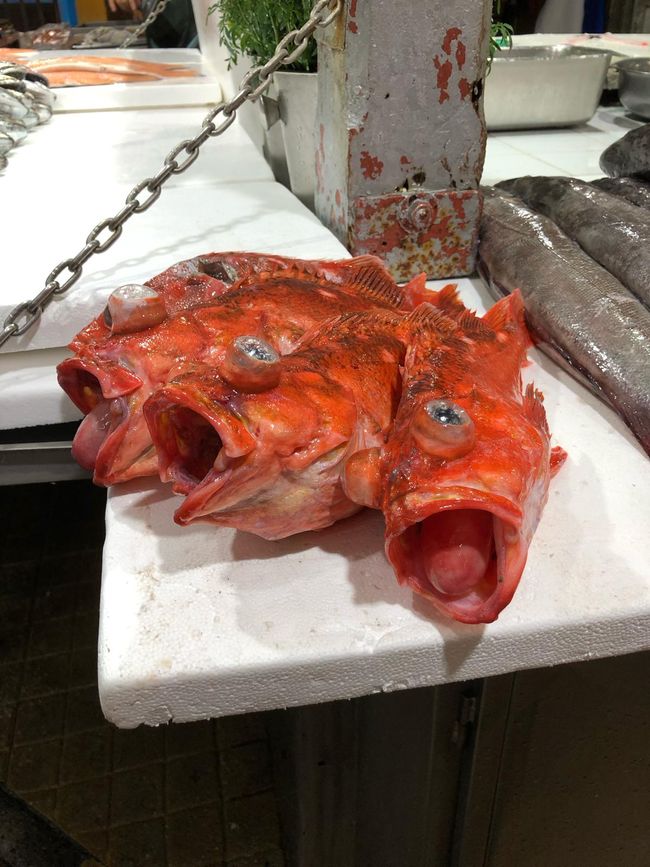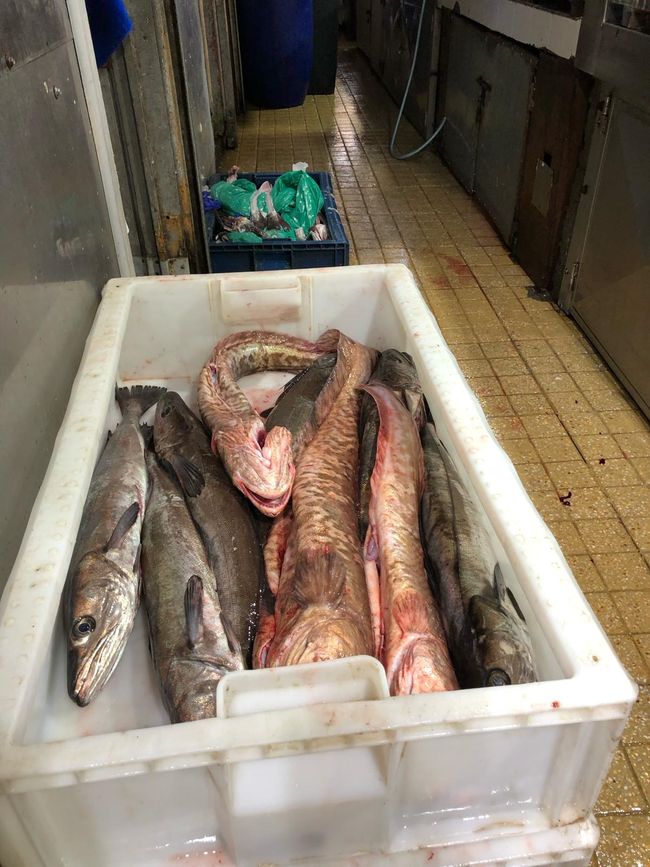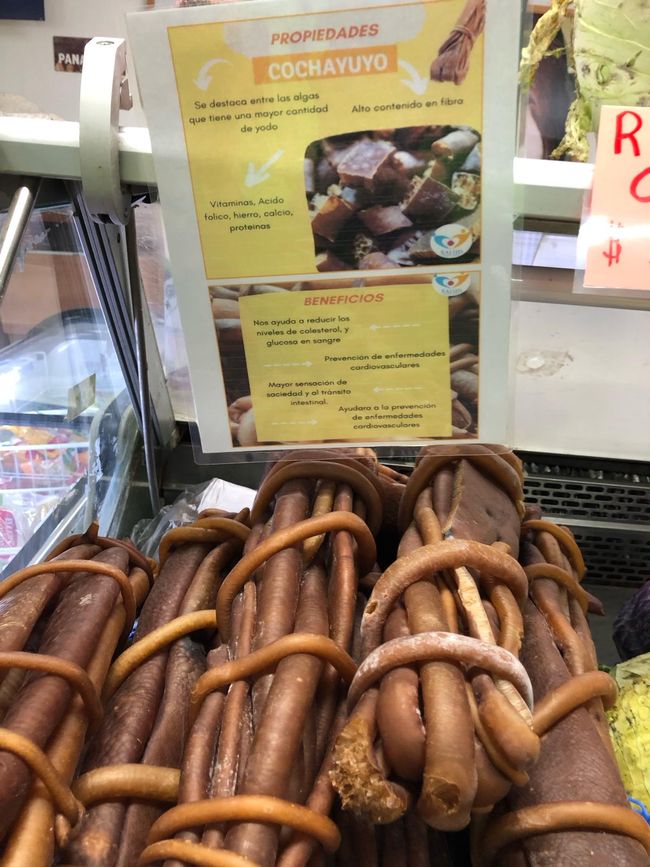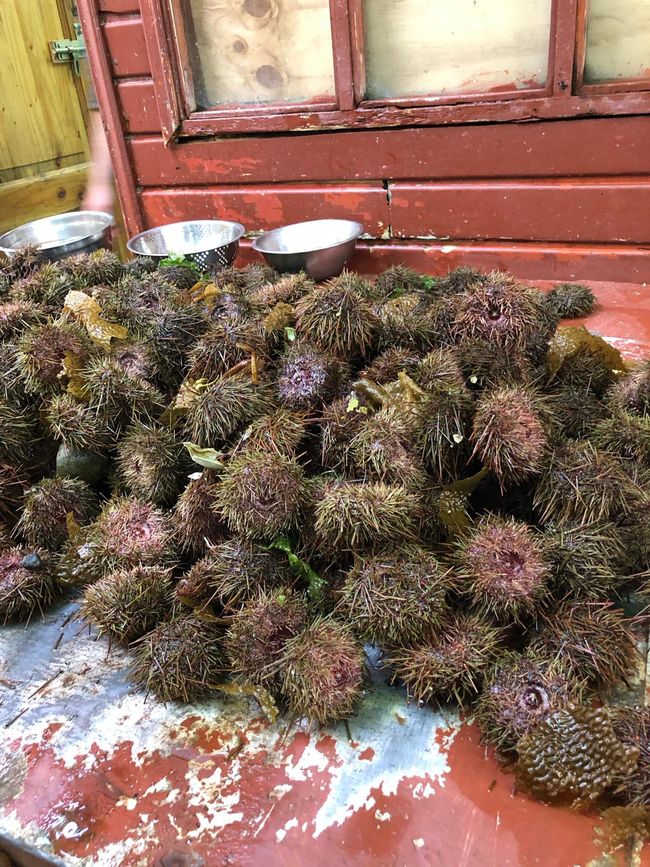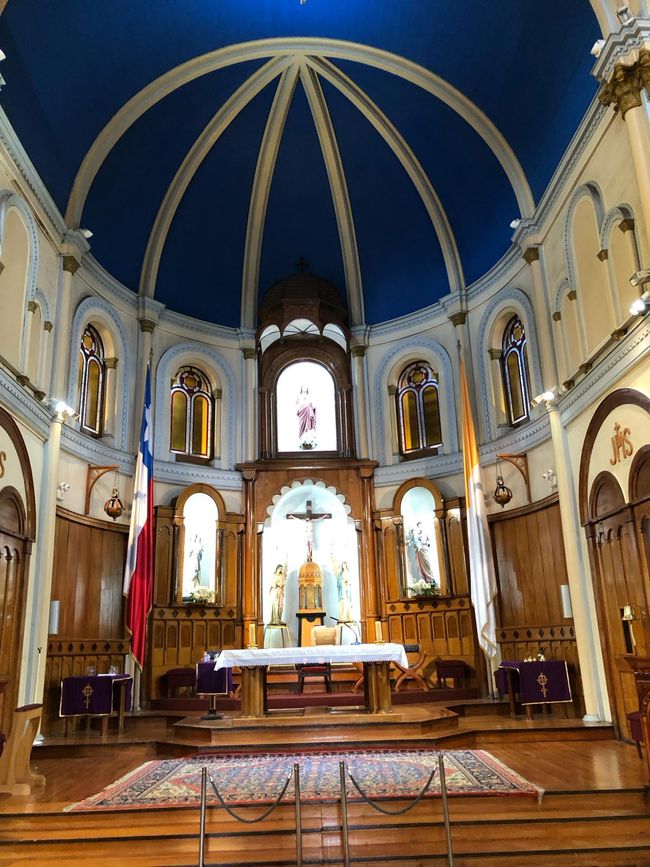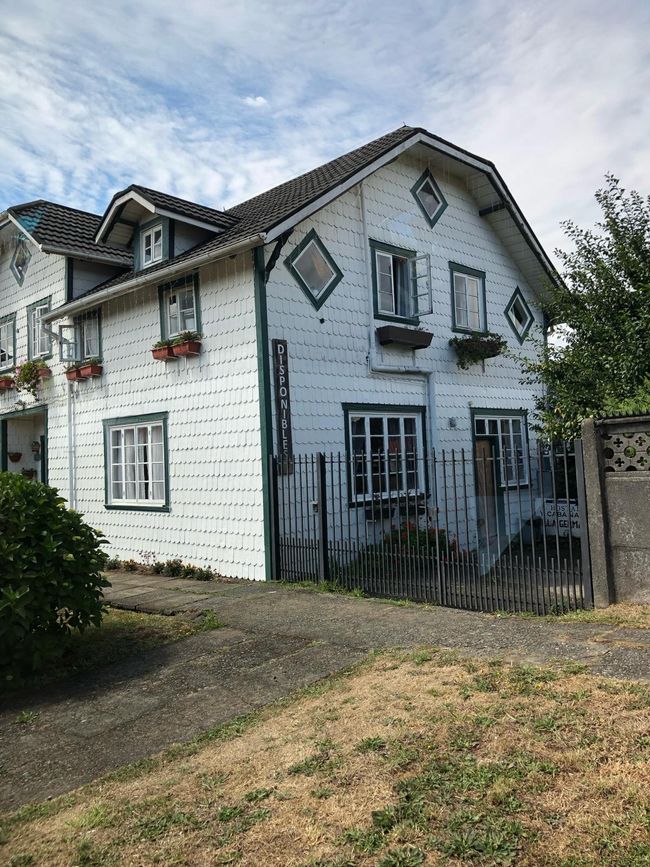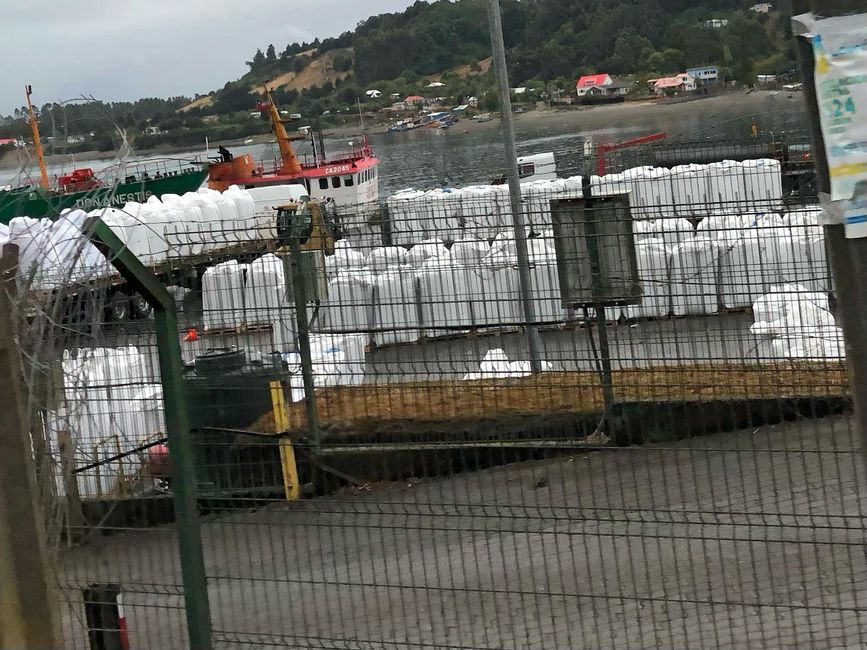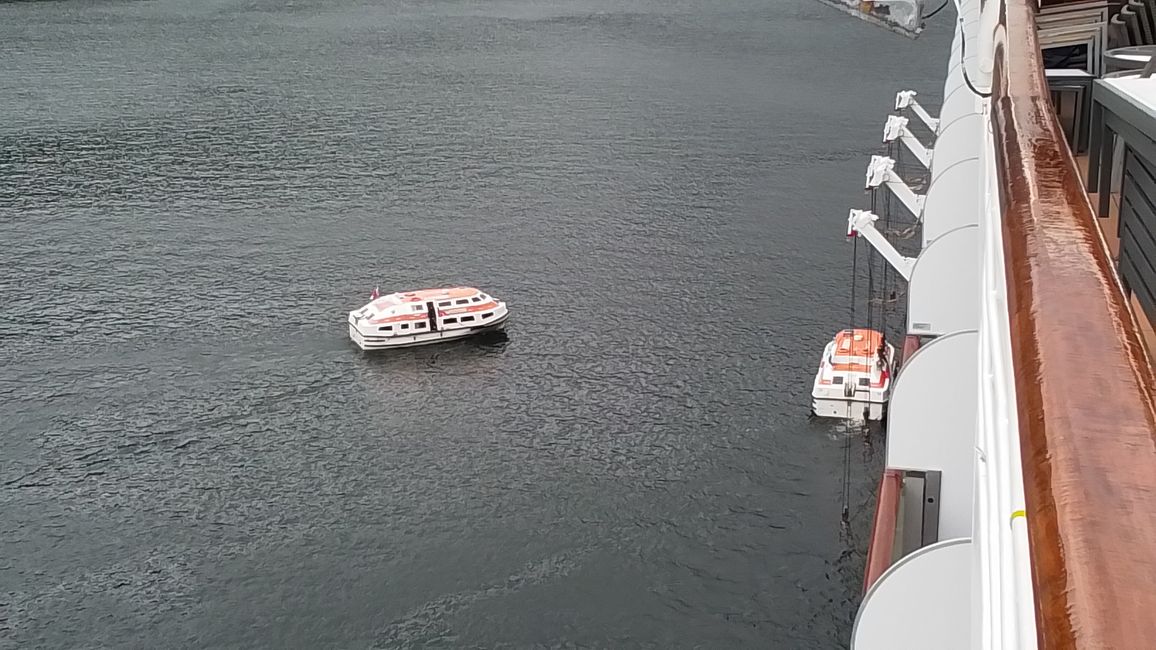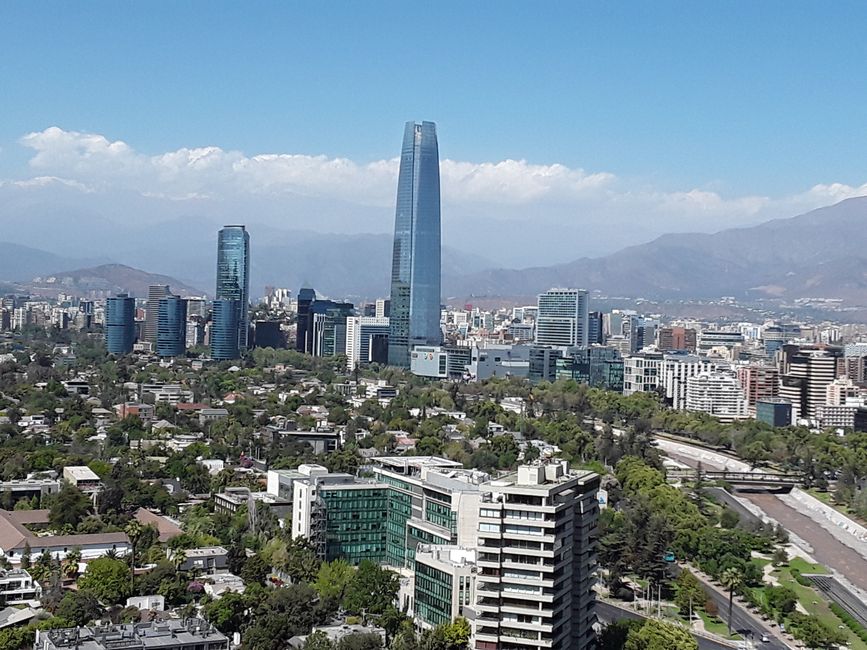
Chile 2. + Kreuzfahrt-Suedamerika
vakantio.de/chile-iikreuzfahrt-suedamerika
02/22/2024 Puerto Montt
Publié: 09.03.2024
Now we had more of a routine with breakfast, but first we completed our next visit to the gym. Karin had her set times and I often went with her. While yoga, Pilates and other forms of exercise took place on the mats with instructions and demonstrations, I went to the bikes, treadmills and weight machines. Looking at the ocean or the television with continuous sports broadcasts or the monitor of the devices distracted from the effort and the time passed quickly.
Then came the shore leave! Tendering was announced!? This meant that all passengers who wanted to visit Puero Montt had to be taken to the port in several lifeboats! Our ship was simply too long for the harbor and so we had to stay in the anchorage in front of the harbor. Those who had booked a trip on the Hollandamericaline found out via the app when and where they had to show up to get on the boats. The other passengers who wanted to undertake their shore leave independently met in the Rolling Stone Lounge. Here we were given a number and had to wait until it was called. While we were waiting for the call over coffee and cake, it was once again expressly pointed out that it was absolutely forbidden to take any food on board other than water. For this we all had to sign a declaration and take it with us so that we could show it if necessary. There were high penalties for violations of this regulation. Chile absolutely wants to prevent any kind of import of foreign organic products.
Changing to the tender boats was completely harmless and could not be compared with crossing to Heligoland. There was space for around 60 people and we drove 10 minutes to the port terminal. Everyone had to show their boarding pass when leaving the ship and their passport photo appeared on the control monitor for checking! In the harbor the backpack was examined and we were there. We had already booked a tour in Berlin through Get Your Guide and a meeting point had been agreed with the tour operator in Santiago. It shouldn't be far from the harbor and we set off straight away, Google showed us the way. 10 minutes later we were there, but no one knew the exact address. Even with a lot of asking and running around, we didn't get anywhere and became very restless because no one came. Now it turned out to be clumsy that we had planned everything using the German cell phone number, but now we found ourselves with a Chilean cell phone (from Franziska)!? When Karin turned off airplane mode on her German phone, we realized it was going to be expensive. But what else should we do in our desperation? So we suddenly had a picture on the screen that showed us the agreed house number and door! We were just 20 meters away, on the other side of an intersection. And when we were then asked to send our GPS data, we were completely overwhelmed!!? But we found the door! And with it our guide, who picked us up in a minibus. We drove alone but were slow to relax!
There wasn't much to say about Puerto Montt, also known as Muerto Montt (Dead Montt) by the locals, as a city: an economic and transport hub in the Los Lagos region that lives mainly from salmon farming. Our guide told us that he had once worked on a salmon farm like this for a month. Floating houses, which are often anchored up to an eight-hour boat ride from land, are inhabited by the workers for two weeks. Here they have all the advantages, such as a chef, gym, television, internet, etc. and they look after huge nets (40m x 40m) in which the small salmon initially develop. These small fish come from the south of Chile and are then released into the farms (from a size of around 20cm). Up to 100,000 animals in one net and usually eight nets around the house!? To ensure that the animals survive, they are fed special food pallets and receive additional oxygen from machines that float under the nets. In addition, the entire fish farm area is surrounded by a security net that is intended to prevent theft or deter predatory fish. The farmers work in all weathers and sea conditions. Supposedly the proceeds from a network should cover all maintenance costs!? Our tour then continued through the Puerto Montt fish market. I had never seen so much foreign seafood sold here. Everything that grows on the seabed was also offered for sale. Well, we also know seaweed salad from Berlin, but the long whips of seaweed and the shell stones that you have to work with a hammer at the table to get to the little crabs that live in them were completely new to us! The fact that we walked through the souvenir market afterwards was just to please the driver, as he is definitely encouraged to encourage the tourists. From these harbor impressions we drove on to Puerto Varas. This is a place (25 km from Puerto Montt) that is closer to the mountains and is considered a tourist center. All kinds of outdoor activities are offered from here and it is also called the capital of roses, but many places here claim that! Unfortunately, we didn't have the picturesque view of the two snow-capped volcanoes Osorno and Calbuco, which are reflected in Lake Llanquihue, because the mountains were covered in cloud haze. But we saw many wooden houses from the beginning of the 20th century that were built here by Germans. These old buildings, with their German names, are still very well maintained today because the wooden shingle covering is unique here. Handmade shingles made from a special tree species, can be seen here in Chile. I once experienced something like this on an ancient farm in the Black Forest. The farmer made the shingles out of pine wood with a special knife! When asked about the strong German roots in this area, the guide started talking. Briefly summarized: Very early relationships between the Chilean upper class and Europe, German inheritance law (especially in southern Germany: eldest son everything) led to poverty and dependencies, offer in Chile of free, free land with the condition that it be used, the local tribes were not asked ! The south of Chile is heavily populated with Italians, Croats, French and English and these roots still exist today! Next to our viewing point at the lake there was a hotel, in whose garden we were given a botanical tour about the local fauna. The guide knew a lot!
Back in Puerto Montt we wanted to have free internet access, but somehow that didn't work and so we ended up in a restaurant and were able to work on emails over a small meal. If we had previously looked at the boat terminal with a little more overview, we would have realized that it was also possible here. Well, we're always learning! When we returned to the ship, all we had to do was sit in one of the waiting boats and wait for departure. We noticed again how many people with physical disabilities or severely limited mobility take part in such cruises. It must be very, very strenuous to move around on the ship or on excursions by bus and on foot. It's certainly not easy to follow a whole busload or slow them down, and then there's the arrival and departure! These images stick in our minds and influence us, as the reader can read later! Back at the Oosterdam there was another computer check and the hand luggage was screened, no smuggling alcohol on board or paying a $25 corkage fee! It was very controlled here. My metal knee was always worth a closer look!
For dinner we whizzed past the serving stations again and, despite our good intentions, ate too much. I had one last cigarette with a coffee on the smoking deck and by 9pm we were in bed!
Répondre
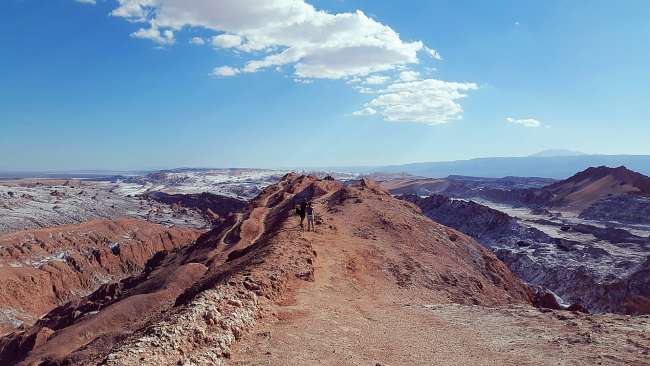
Rapports de voyage Chili
